REVIEW: SummerWorks Festival
Spend a year in Toronto and you’ll find that locals spend most of their year waiting for summer to return to the city. Once the sun comes out, we’re spoiled silly with things to explore, eat, and experience. And it’s events like the SummerWorks Festival that make a Toronto summer what it is.
SummerWorks is a contemporary performance festival with international appeal and curiosity at the forefront of its creativity. From August 3-13, this year’s instalment showcased a unique collection of productions, works in progress, and community events.
Innovative and thought-provoking, the events covered below include Switching Regent(s): Making Street Theatre Magic; The Dinner Party; TRUCK; Ballroom, Too; and i am your spaniel, or, A Midsummer Night’s Dream by William Shakespeare by Gislina Patterson.
Switching Regent(s): Making Street Theatre Magic
gay
/gā/
adjective
1. Of, relating to, or having a sexual orientation to persons of the same sex.
2. Showing or characterized by cheerfulness and lighthearted excitement; merry.
The Switch Collective’s four-day residency at the Summerworks Festival culminated in a queer historical walking tour through Toronto’s local bedrock of urban development, Regent Park. Through mixed-media street performance, Switching Regent(s): Making Street Theatre Magic explores the shifting architecture of public policy, private interests, and everyone left behind.
The audience ultimately becomes a part of the parade they’re following, whether or not they’re emboldened by the acts of celebratory protest. At times, playful quips on the housing crisis and the chanting of rudimentary activism vocabulary only offer a self-evident perspective on Regent Park, almost as if the artists were depending on the audience’s allyship for artistic meaning. Still, the neighbourhood itself becomes a landscape of unknown and uncertainty in response to the lack of detail the performance provides.
In the increasingly gentrified neighbourhood, it’s purposefully unclear whose space or reality this performance aims to disrupt. There’s an unspoken curiosity between the audience and the onlookers as both parties try to figure out what the other’s presence means. Even a distracted look into a random window or passing car interrogates one’s existing understanding on how communities are created or destroyed — by who and who for.
A mosaic with little cohesion, the creative muscle behind Switching Regent(s) is perhaps more engaging than the output. The strength of this piece lies not in its body, but its heart.
The Dinner Party
When we think of gig labour, we think of Uber drivers and food delivery couriers before we think of artists.
There’s a martyrdom we often impose on artistic labour that prevents us from seeing it for what it is — labour. And that’s exactly what Means of Production wants to circumvent. The Dinner Party is a true symposium, drawing out artists and arts workers alike to discuss the impact of our industry’s reliance on gig labour over a three-course meal at Hello123.
But when overworked people finally get to talk about their jobs, it’s easy for the conversation to become an echo chamber of empathy. Everyone has something to say about the dysfunctional funding model, but no one seems to have a solution. The scarcity mindset we’ve developed at all levels of management, combined with the illusion of sacrifice, only fuels a complacency in decision-making and how we understand change.
Thus, our imagination for problem-solving is increasingly limited. Yet here we are, talking over watermelon ceviche about all the things we pretend don’t exist in fear of unemployment. I confided to my table: I hate that I’m bored by most theatre in Toronto. Everyone I know is good at their jobs, but I don’t understand why I should care about what I’m watching or working on. This is in part because artistic leaders and organizations don’t have a connection to the people in their city outside of those who already attend theatre or fund it, or even a relationship with the people who make it happen. And between bites of lasagna, everyone admitted that they don’t have the time or energy to see the shows that inspired their careers in the first place.
It was refreshing to share my eccentric approaches to increasing donorship and ticket sales with artistic professionals who actually took me seriously. And it’s events like The Dinner Party that creatively mobilize artists, administrators, and technicians to respond to a non-profit model that doesn’t care where our next meal comes from, or when. As long as we show up to work the next day.
Nothing screams class solidarity like a free meal.
TRUCK
Sometimes we get so wrapped up in our own autonomy, we refuse to consider a world in which it doesn’t exist.
Although set in the future, Graham Isador’s TRUCK is a tactical exploration of the age of automation that is already being ushered in. It’s 2038 when the last truck driver in America, Alan Moxley (Adam Lazarus), is forced into early retirement by tech-giant Edison, who is eager to implement their fleet of self-driving long-haul vehicles.
But here in 2023, TRUCK is a staged reading at The Theatre Centre, with artists who have already lost their jobs to artificial intelligence.
There’s an almost urgent transparency that this bare-bones presentation elevates in the text, which is incredibly well-paced and layered. With the sound designer (Ron Kelly) onstage with the performers mixing audio in real time, the involvement and labour behind TRUCK is clearly evident. The presence of all the actors at the same time adds to the insidiousness of Alan’s close friend (Tim Walker) scheming behind his back with Edison’s representative (Ellie Moon) to coerce him into taking a settlement in exchange for his retirement.
TRUCK touches on the economical impulse of efficiency that results in corporations trading people’s livelihoods like baseball cards. And even to Alan, these choices make sense. But the statistical reality that incentivizes automation ignores the embodied reality of mass unemployment.
If we don’t live in a world where our purpose and self-identity can be separated from labour, why are we creating the tools of our own obsolescence? How are we conceptualizing who matters, or what their value is? If The Dinner Party creates the space to ask those questions, TRUCK delivers the harsh reality of the situation: that we’re taught to view ourselves and others as disposable.
During the talkback, writer and director Isador suggested that the path to greatness isn’t paved by productivity, but failure — or at least the room for it. And perhaps creating the space and spirit for experimentation is what made TRUCK’s first public presentation so special.
Ballroom, Too
What does it mean to bring a culture out of its original context?
That question is the driving force for the creators behind Ballroom, Too. From competition show Legendary to Beyoncé’s Renaissance, the historically queer Black and Latinx subculture — Ballroom — has been receiving mainstream attention like never before.
Enter Canadian Ballroom artists Legendary Snoopy 007 (Matthew Cuff), Mother Ivy Andromeda 007 (ivy hazard), and Mother Raven Louboutin Milan (Chéline Lacroix), who are bringing Ballroom outside their communities, and on their own terms.
Upon entering, audiences are greeted by the uncanny chrysalis of Ivy Andromeda. Not quite insect or human, the metamorphic narrative of unbecoming is told through layers of mask, movement, and material. One room over, Snoopy can be found at the top of the risers, torn between a resistance and embrace of the light Vogue can bring out in someone who might be scared of their own radiance. Visitors are encouraged to go between rooms as they please, and even tune into a virtual call with Raven Louboutin, whose knowledge and history of the culture serves as a contextual underscore throughout the presentation.
A fusion of Ballroom and performance art, the rules of engagement are incredibly blurred. With a cautious curiosity, everyone is trying to gauge how they should interact with the performers in this hybrid environment, punctuating the atmosphere with an occasional “woo!.”
I loved that the immediate introduction to Ballroom, Too embodied my favourite category: bizarre. Mainstream audiences don’t usually see Ballroom depicted as freaky or punk so much as they see it as glamourous. I was disheartened to see so many people move onto the next room before the next segment had even begun.
While audience participation is an inherent part of Ballroom, the rules of spectatorship in contemporary performance are often more rigid, clearly distinguishing the artist from the audience. But in Ballroom, the decorum of the runway is facilitated by a Commentator, and without that interlocutor, specific elements or interpretations of Ballroom may be lost on visitors new to the culture.
Ballroom, Too provides a curious and compelling perspective on what Ballroom can entail. If the first step considers how to bring Ballroom outside of its own context, the next step is to explore the terms and terrain of the place its delivered to.
i am your spaniel, or, A Midsummer Night’s Dream by William Shakespeare by Gislina Patterson
We Quit Theatre’s i am your spaniel, or, A Midsummer Night’s Dream by William Shakespeare by Gislina Patterson, takes everything you know about Shakespeare’s most produced play, throws it out the window, and yells, “FETCH!”
Through puppetry and pup play, Gislina Patterson the scholar (she/they) — not to be confused with Gislina Patterson the performer (he/they) — delivers a drag performance lecture on how A Midsummer Night’s Dream speaks to the loss of identity for the sake of love.
The play begins as an exploration of Shakespeare as a cartographer of breath, and how punctuation acts as a device to map how ideas can be processed and expressed. What starts as textual analysis of the First Folio evolves into a larger commentary on the appetite of the body politic. Hierarchy, power, and control are reflected in the relationships and settings of the Renaissance play, and despite being the bard’s most produced work, its historical role as political propaganda for the English monarchy is often overlooked.
And it’s Helena’s unrequited-yet-absolute devotion to Demetrius that launches the investigation of what exactly brings us to the point of submission.
If Gislina were my professor, I would never skip class. Patterson brings a natural candour to the offbeat instructor with a habit of oversharing, and their chemistry with long-time collaborator Dasha Plett allows the audience to trust what’s happening, even when things seemingly go awry. Candidly and chaotically calculated, I am your spaniel twists the conventions of a lecture, embedding theatrical “technical difficulties” that keep people on their toes.
Masters of intertextuality, Patterson and Plett have done their homework, drawing from a variety of stories and sources to explore the body as a site of connection and control. But as the proverbial shit hit the fan, it was easy to get lost in all the ideas and images that were included in the second half of the play. With a larger focus on aesthetic and sensation, the narrative gets a touch hard to follow, and it’s unclear where the BDSM roleplay is supposed to deliver the audience.
Ultimately, there is a tremendous amount of curiosity and catharsis to be found in this We Quit Theatre production, which will return to stages in January 2024 as part of Buddies in Bad Times upcoming season.
SummerWorks closed on August 13, 2023. You can learn more about the festival here.
Intermission reviews are independent and unrelated to Intermission’s partnered content. Learn more about Intermission’s partnership model here.

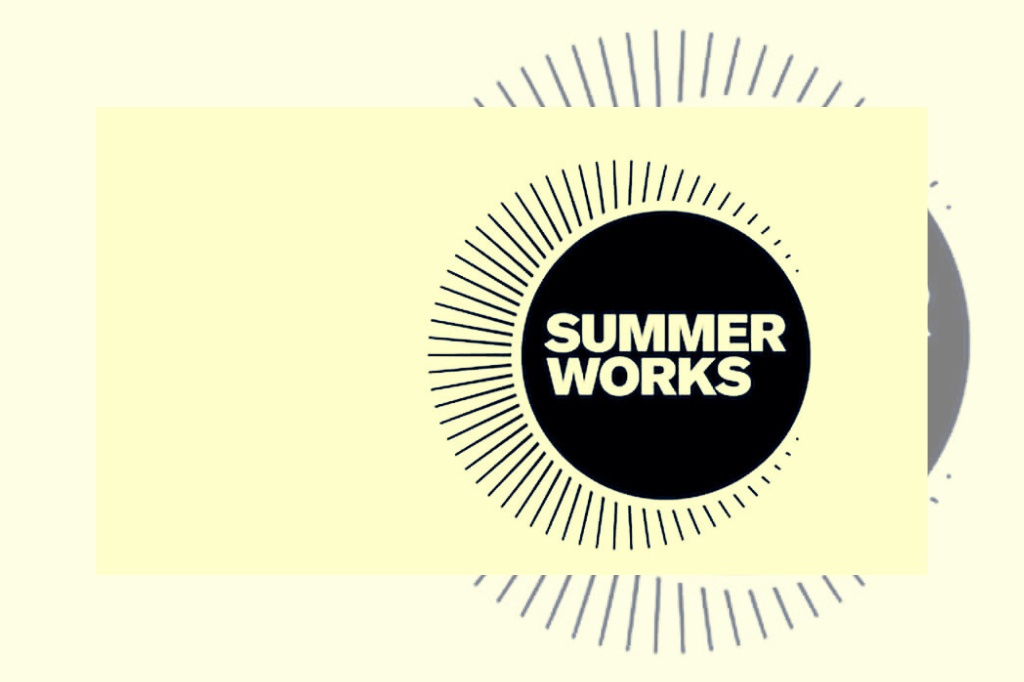


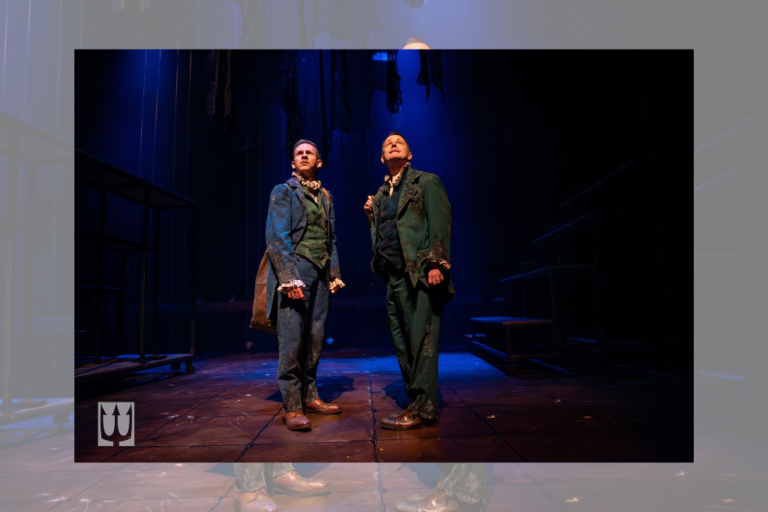

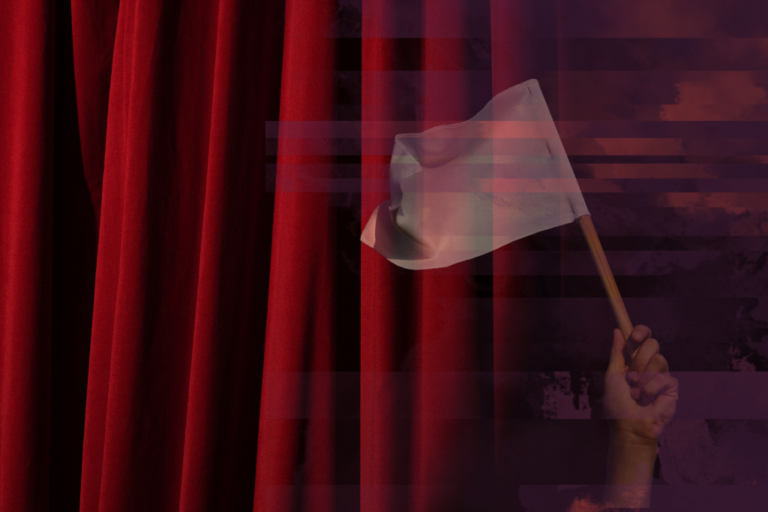
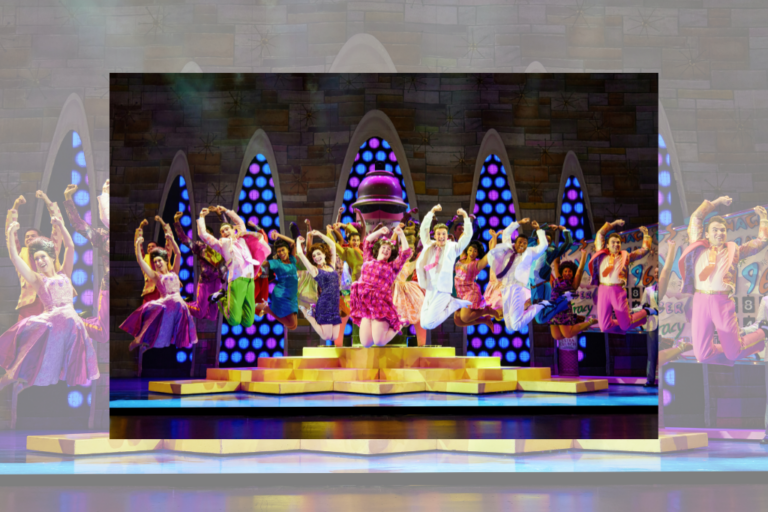
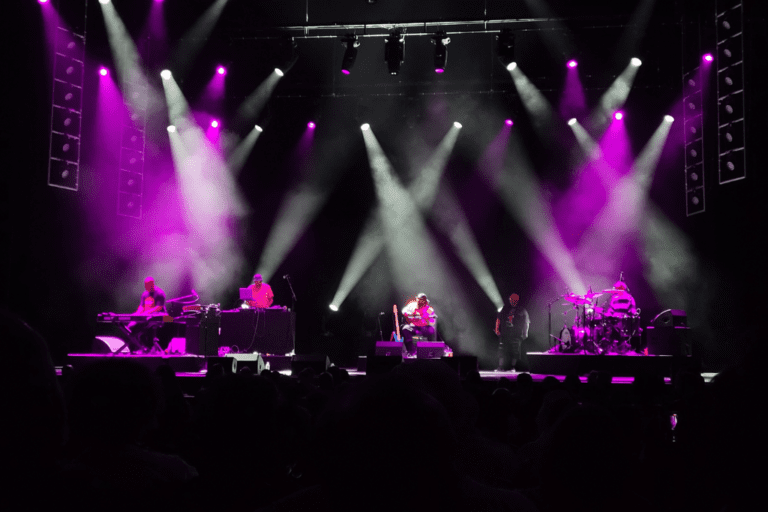

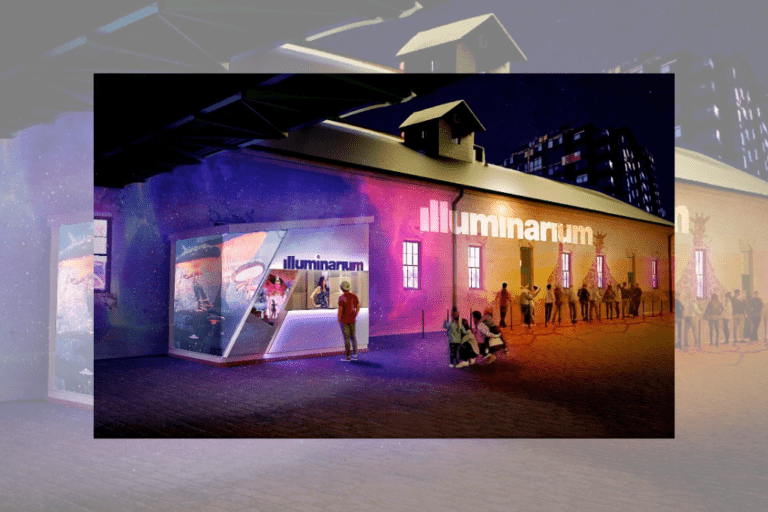
Comments